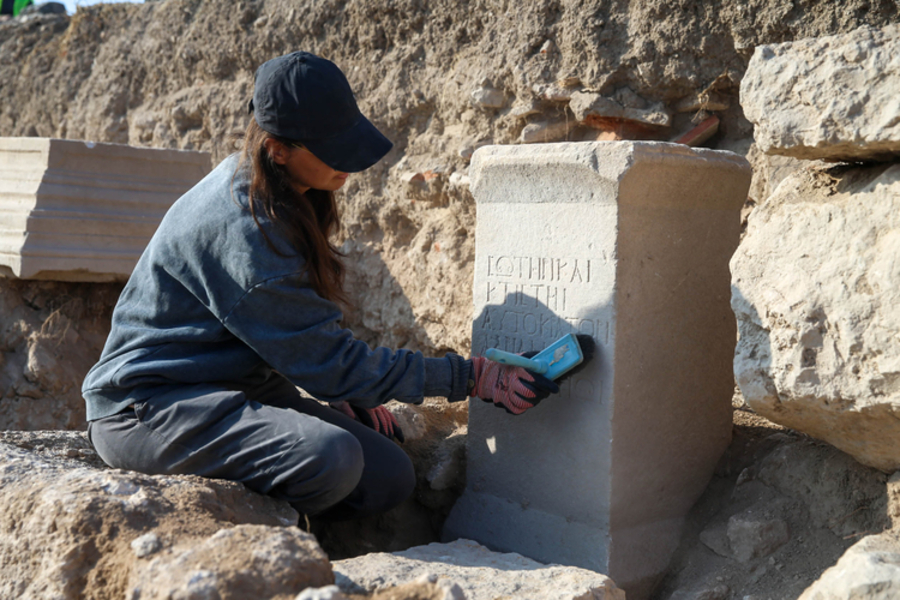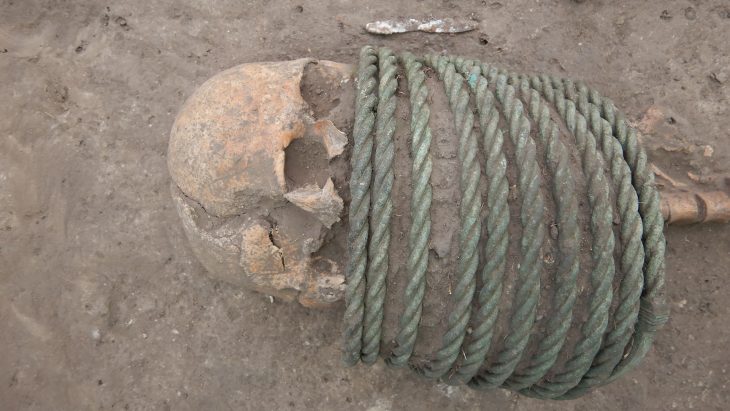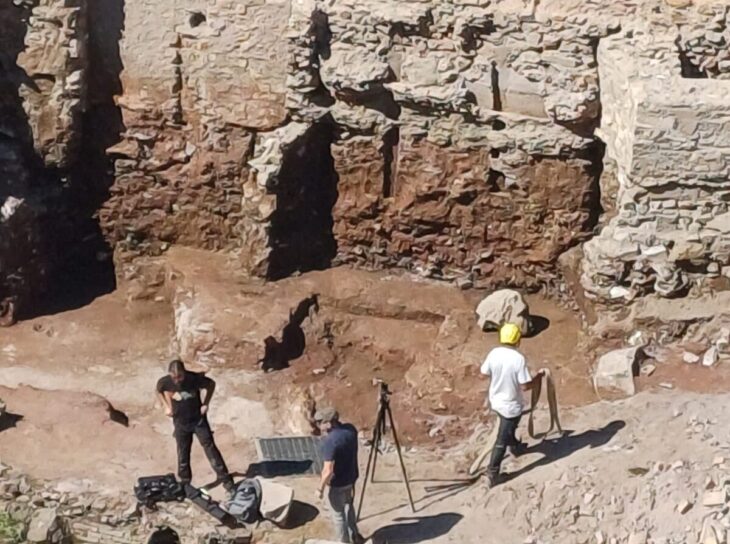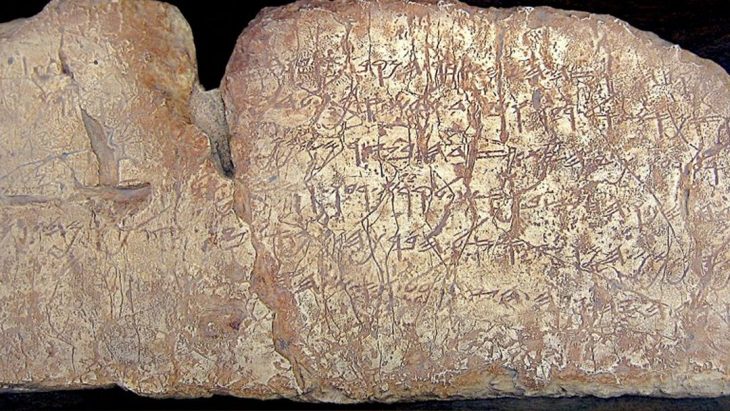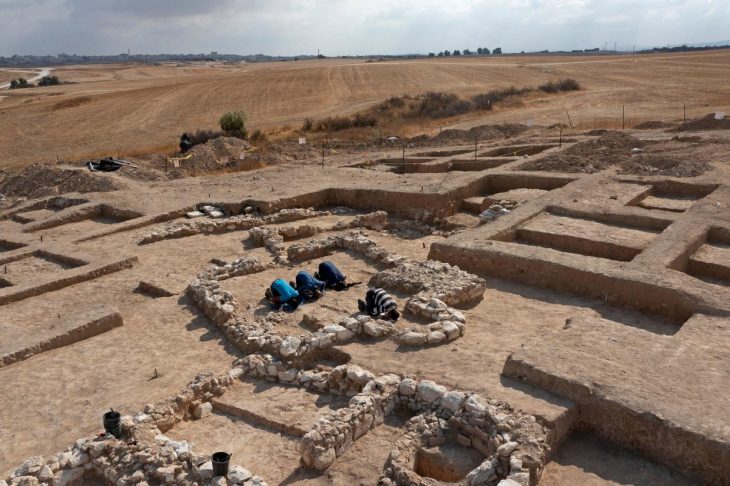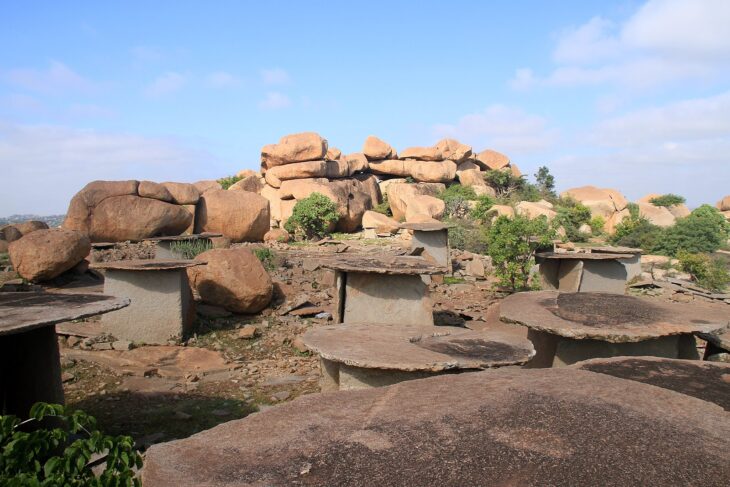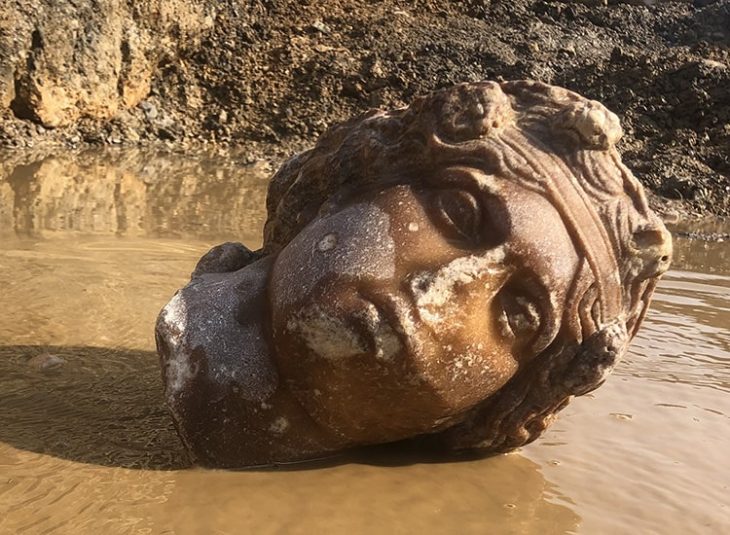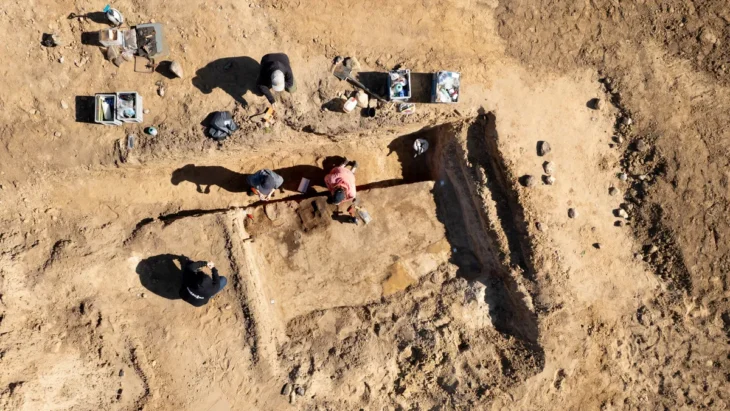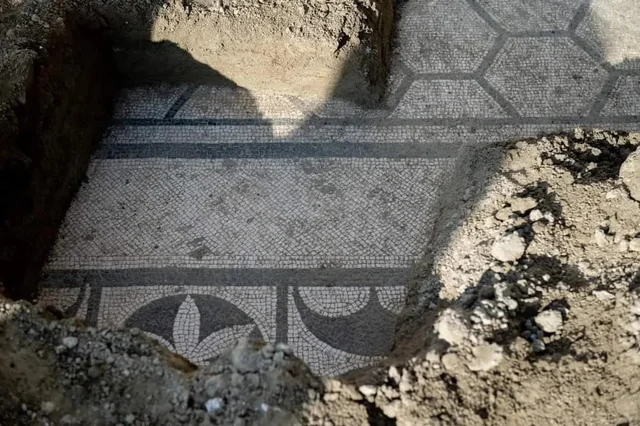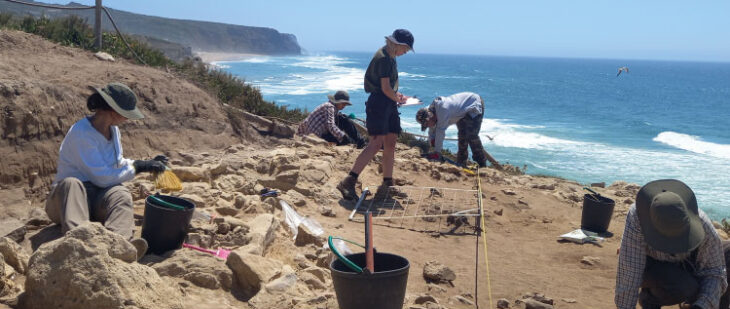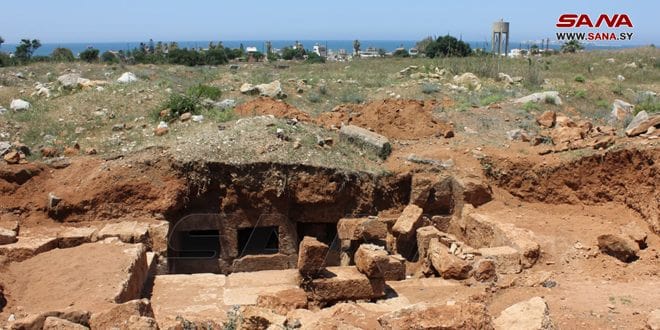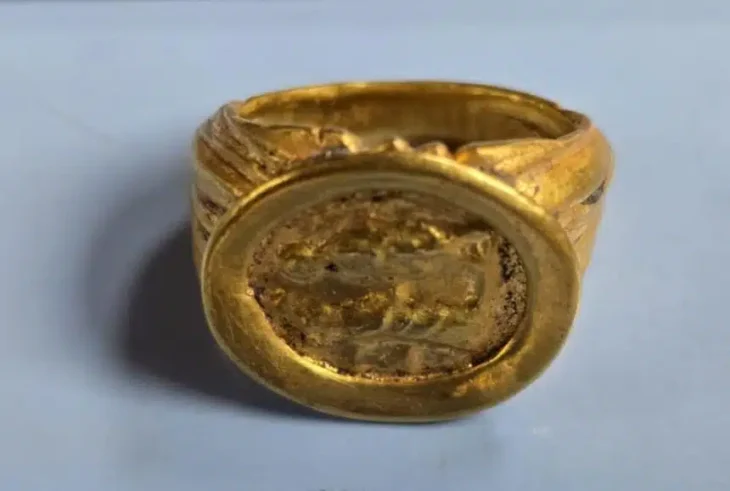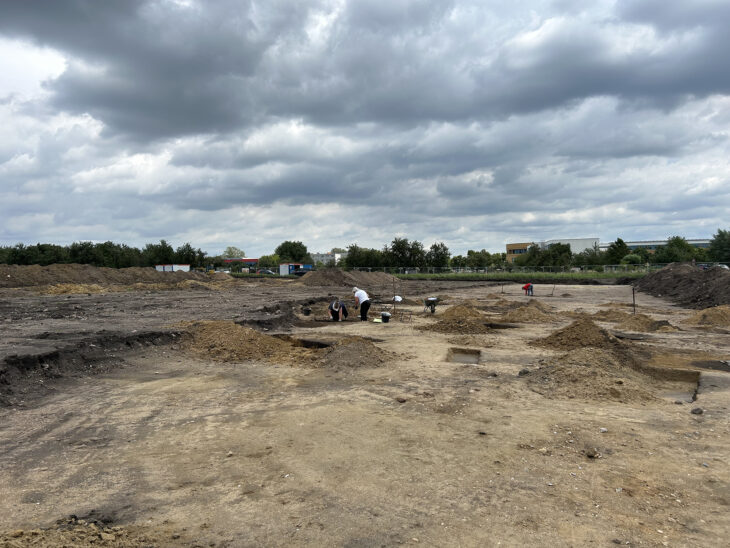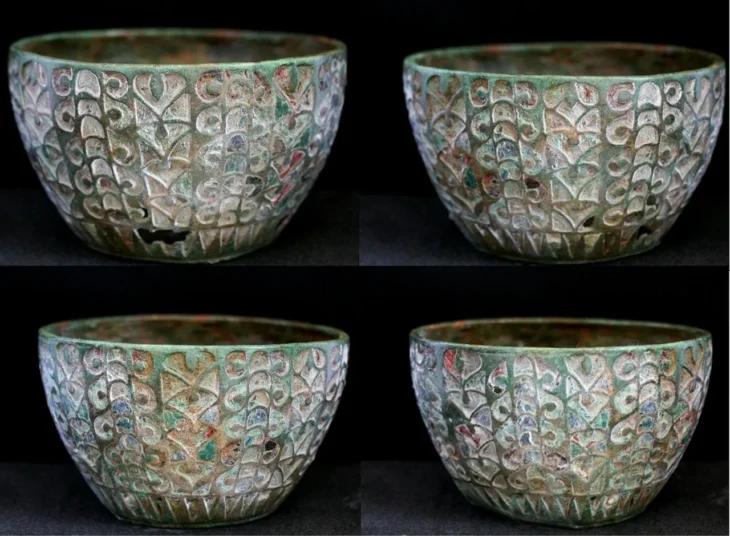An inscription dedicated to the Roman Emperor Hadrian was discovered during the ongoing excavations at the ancient city of Blaundus (also known as Blaundos), located within the borders of the city of Uşak in western Türkiye.
The ruins of the ancient city, are located in what is now the Ulubey district of Uşak province. Blaundus was built by Macedonians who came to Anatolia, present-day Türkiye, following the military campaign of Alexander the Great in the third century B.C.
The Macedonians who lived in the city used to even refer to themselves as the “Macedonians of Blaundus.” However, with this British geologist William John Hamilton uncovered inscriptions on a slab that said “Blaundeon Makedonon” in 1845. Shortly after the reign of Alexander the Great, Blaundus became part of the Pergamon Kingdom and was later occupied by the Romans. The city experienced its golden age during the Roman period. In this time period, Blaundus would also become the seat of a diocese or bishopric, which remained right through the Byzantine Era.
The ancient city is also home to a Demeter Temple, a theater, a stadium, rock graves, and well-preserved city walls. Started in 2018, excavation works continue this year under the direction of Uşak Museum Directorate.
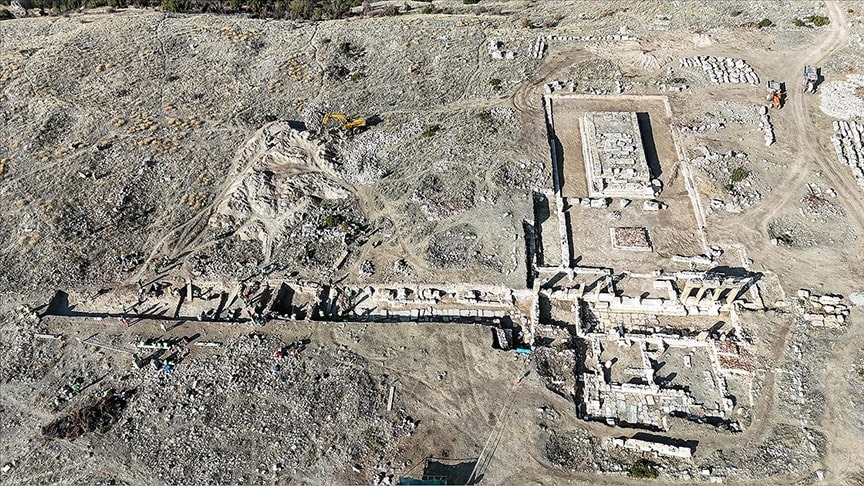
A project was prepared by the Uşak Museum Directorate to reveal the colonnaded street used as a bazaar in the center of the ancient city. The work was included in the scope of the ‘Heritage for the Future Project’ carried out by the Ministry of Culture and Tourism.
📣 Our WhatsApp channel is now LIVE! Stay up-to-date with the latest news and updates, just click here to follow us on WhatsApp and never miss a thing!!
It is known that the street running east-west in front of the temple of the goddess Demeter was the heart of the ancient city during the Roman and Byzantine periods.
An inscription dedicated to the Roman Emperor Hadrianus was found during the works. Hadrian was the Roman emperor from 117 to 138. The 80-centimeter long and 35-centimeter wide marble inscription reads, ‘To the savior and founder emperor Hadrianus Olimpios’.
Archaeologists believe that the emperor Hadrianus provided aid to the cities at that time and expected praise from the people of the region in return and that the inscription may have been written for this purpose.
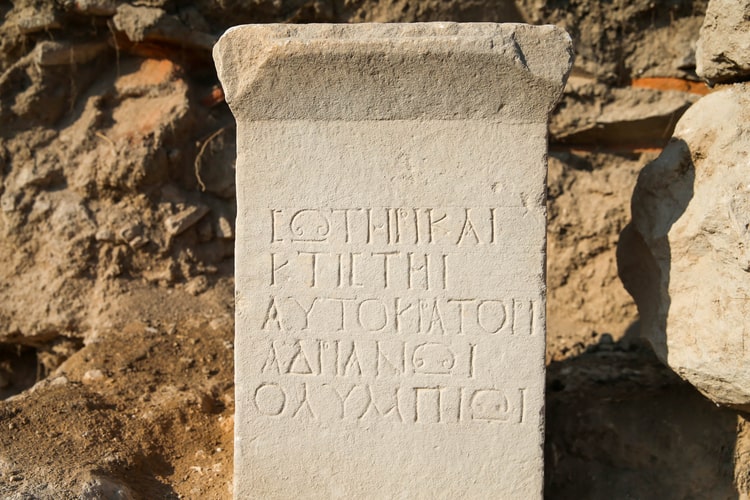
Provincial Director of Culture and Tourism Sabri Ceylan told AA correspondent that they started excavation works on the colonnaded street in the first week of November after Blaundos Ancient City was included in the ‘Heritage to the Future Project’.
Stating that the colonnaded street is the most important point of the city, Ceylan said, ‘We have started to open the east-west orientated street since the beginning of this month. So far, we have found 4 column bases. In addition, an inscription dedicated to the Roman Emperor Hadrianus was revealed during the ongoing excavations. The historical process of the inscription is under investigation. This inscription shows us that Hadrian was an important personality as an emperor.’
Blaundus is situated on a slender, cliff-ringed peninsula that protrudes into the Ulubey canyons, which are among the biggest canyon networks in Turkey and were formed by the Banaz and Ulubey rivers. The city sat on the border of Phrygia and Lydia, two ancient regions of Asia Minor.
Cover Image: Mehmet Çalık – AA

